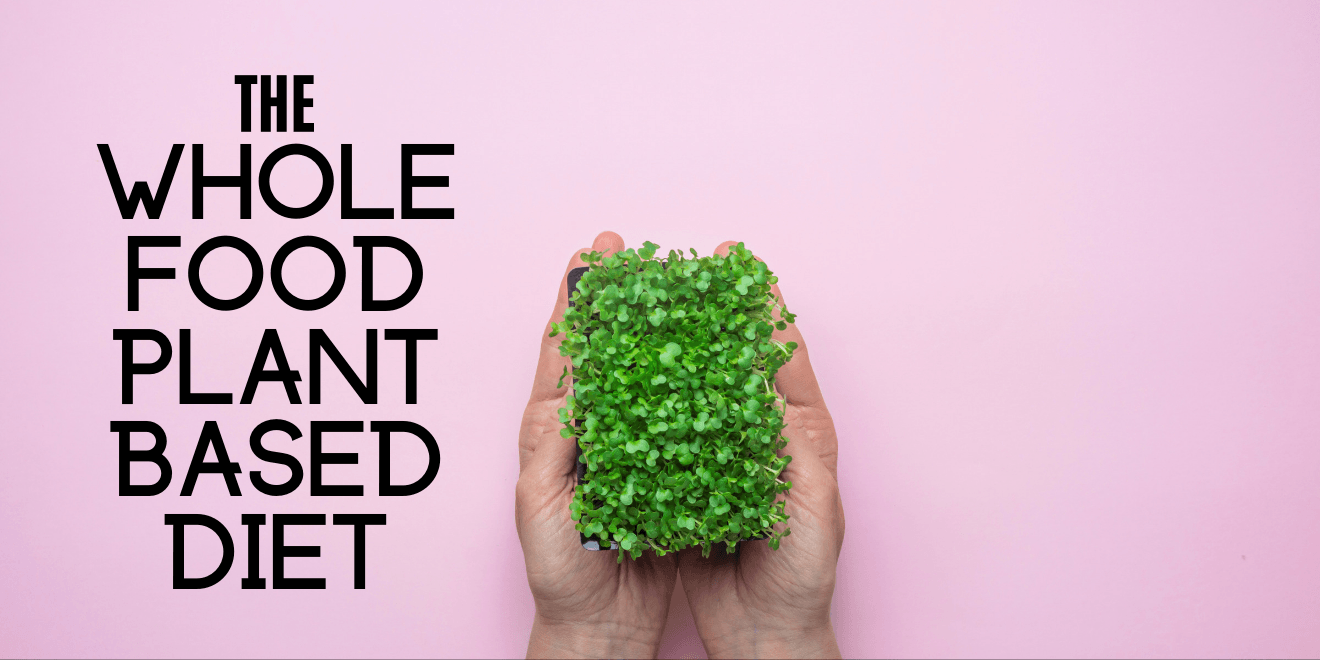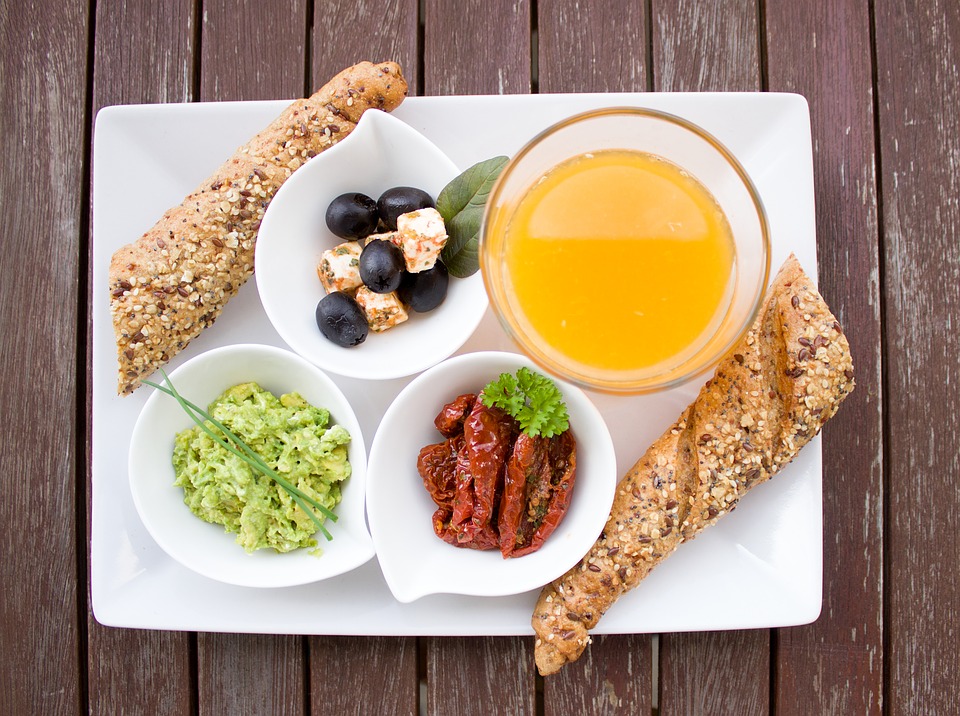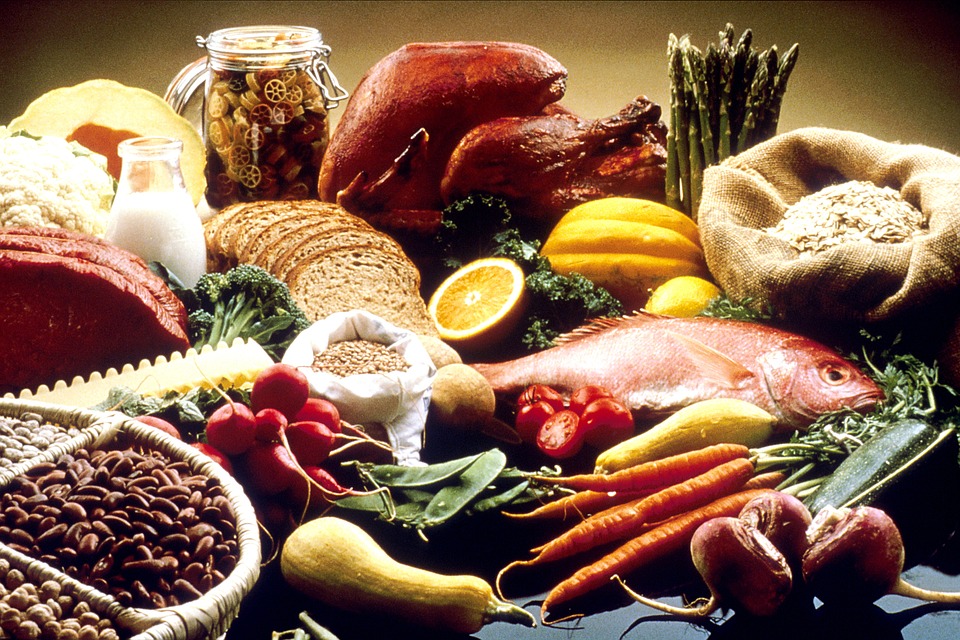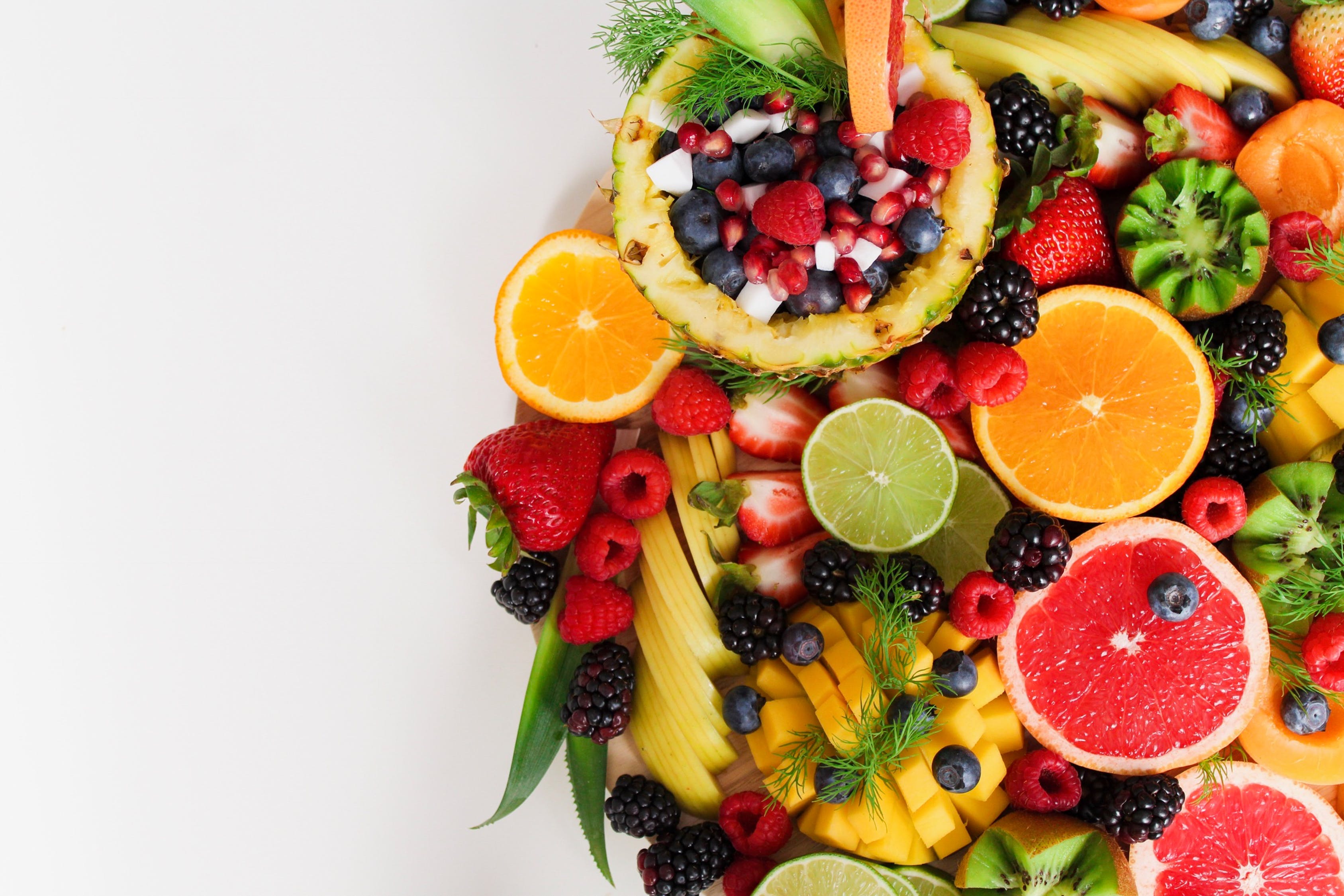Why Everyone Should Adopt a Plant-Based, Whole Food Diet: The Beginner's Guide

If you are going to ask people about a really good diet to follow, you are going to get a boatload of opinions and suggestions about which one is most ideal.
Most experts agree that diets that emphasize fresh and whole foods reducing fatty, processed foods and sugars are best. So once again, you will find a few excellent diet plans out there to suit your needs – let’s call them lifestyles--ones that if you are interested in getting your health on track, you will want to continue to follow as a way of living for the rest of your life.

Today, we are going to chat a bit about one of these excellent diets for you to consider – Dr. T. Colin Campbell’s plant-based diet is mostly about eating low fat, high fiber foods which are achieved by consuming vegetables, fruits, and whole grains.
https://www.youtube.com/watch?v=t7yjlil4E2Q
Certainly, its greatest focus is on minimizing processed foods, and it is one that stimulates weight loss yet improves your health. Just see how your health benefits when you make this your focus as well. Actually, there isn’t really any clear definition of what the whole-food plant-based diets constitute. It is because a plant-based diet can vary a lot, depending on the extent of how much animal products you also include in the diet. Dr. Campell says that he avoids the ‘V’ words; vegetarian and vegan. He is of the opinion that vegetarians consume too many animal-based foods like fish, dairy, and total fat. Vegans are inclined to eat too much fat and processed foods.

Sometimes people get a bit confused with the vegetarian diet or vegan diet. Those who follow a vegan diet abstain from eating any animal products including dairy and eggs. Vegans won’t eat poultry, meat, eggs, seafood or honey.
Vegetarians exclude all poultry and meat from their diets, but vegetarians may eat eggs, dairy and/or seafood. The WFPB diet is much more flexible than that. Those following the eating plan eat mostly plants, but they do still include unprocessed animal products. However, some who follow the WFBP diet won’t eat animal products, but you will get some who will include small amounts of poultry, eggs, seafood, meat, poultry and dairy in their diet.
Plant-based diets are up-to-date replicas of a lot of the healthy traditional diets that recommend available plant-based foods of the day. This includes fruits, veggies, starches such as corn, potatoes, beans and legumes, seeds, nuts and of course healthy fats such as whole coconuts or olives. Today, there isn’t one plant-based diet that is ‘the’ diet of today, but rather there are many, all with different variations. These variations stem from cultures from all over the world.
Here are a couple of good examples of modern plant-based diets today:
The University of Oxford Cancer Research Center shows that generally, the plant-based/vegetarian diets provide quite high amounts of complex carbohydrates, and also omega-6, vitamin C, dietary fiber, vitamin E, antioxidants like folic acid, carotenoids, and magnesium.

It is true that a plant-based diet is very healthy, but it will take some planning to ensure that you get enough retinol, omega 3 fatty acids, vitamin B12 and enough minerals such as the all-important zinc.
Are you not ready to give up eating animal products? Me too - read the following article, Is eating beef good for me? My flexitarian dilemma
It’s not that much of a problem because not all plant-based diets are totally vegan or vegetarian. Many do in fact include quality animal foods in them, but they do so in moderation – a good example of a diet like this is the Paleo Diet. Foods such as meat, fish, dairy, and eggs aren’t altogether off-limits when transitioning to Paleo. However, animal products do take a back seat to the super healthy unprocessed plant foods. You should aim to limit the above non-plant-based foods to less than 10% of what you put on your plate if you want to experience the impact of increased plant consumption.

This will depend on you because as we mentioned above, there are many types of plant-based diets and apart from that, each person is different too. For instance, diets like the Ornish Diet, The “80-10-10 Diet” and also vegan diets are all high in carbohydrates such as fruit, veggies, grains, and beans. They are low in protein and fat. If you follow these diets, you probably will get around 60–80% of your daily calories from the ‘carb’ macronutrient and only around 10% from proteins or fats.
Some of the longest living civilizations around the world from Okinawa in Japan eat diets comprising of foods that are over 80% of the carb macronutrients. It is important that as the calories you are taking in from carbohydrates are whole and unprocessed- like whole wheat, oats, spelt, rye and quinoa.
Then you get other diet varieties like the DASH Diet or the Mediterranean Diet, which are around 40–60% carbohydrates, but which include more healthy proteins and fats.


Because the WFBP diet is very healthy for your heart, your heart naturally is going to benefit. Studies confirm that those who follow the WFPB diet which is so rich in fruits, veggies, legumes, whole-grains, and nuts – significantly lower their risk of developing heart disease over the people who follow non-plant-based diets. But remember, if you follow a plant-based diet but still include sugary drinks, refined grains, etc., you only increase your risk of heart disease.

There has been a large body of research examining what a plant-based diet can do to prevent cancer. Vegetarian diets were found to be associated with lowering the risks of gastrointestinal cancer and colorectal cancer compared to those who are non-vegetarians.
Diets that are rich in fruits and vegetables also help to prevent cognitive decline as well as Alzheimer's disease in older adults. A plant-based diet naturally has a higher number of plant compounds in it and also antioxidants. These have been shown to slow down the progression of Alzheimer’s disease and to reverse cognitive deficits.
When you make a lifestyle out of the WFPB diet, you are able to reduce your risk of developing diabetes. Studies show that those who follow the diet had a 34% lower risk of developing diabetes than those who didn’t follow a plant-based diet.

We hear this word, inflammation, a lot these days.
These days it is tied to just about every chronic disease around from a leaky gut syndrome to cancer, arthritis, and heart disease. Anti-inflammatory foods go a long way in stopping the progression of a disease because they supply nutrients that fight oxidative stress. High anti-inflammatory foods like those of a plant-based diet promote longevity, they regulate the immune system and they impact the way inflammation affects our lives and our bodies. Plant foods improve and foster better gut health, boosting our immune system’s functioning and reducing autoimmune reactions which would normally cause a whole bevy of age-related diseases.
Plants such as vegetables, ancient grains, seeds, and legumes are all high fiber foods.
High fiber foods lower your risk of constipation, high cholesterol, digestive problems, diabetes, and heart disease. When you get enough fiber, you also prevent cravings and overeating. Fiber also keeps your arteries clear of plaque buildup. Fibers allow healthy bacteria to thrive in your system. Some top high fiber plant foods to add to your diet include flax, avocado, chia seeds, coconut, apples, figs, dates, cabbage.
There are still many populations in the world that eat traditional diets which are high in plant foods – these people tend to suffer far less from chronic disease than those who eat the modern Western diets.
There are “ Blue Zones ” in the world where people eat the highest percentage of plant-based foods and people can be found there who live well over the age of 100. They don’t know a lot about heart disease, cancer, diabetes, dementia, osteoporosis and the like. The famed Lyon Diet Heart Study discovered that the Mediterranean-style diet , which is mostly plant-based, was able to cut heart attacks and death rates from heart disease by 70% compared with a traditional American Heart Association diet. Plant foods that are commonly eaten in the ‘healthy’ part of the world are green leafy veggies, fresh herbs, and spices, tropical fruits like pineapples and mangoes, seeds and nuts, ancient grains and corn, beans, olive oil, and sweet potatoes.

https://www.youtube.com/watch?v=m3WBys6zIo4
Start weeding out the processed packaged stuff today!

Most experts agree that diets that emphasize fresh and whole foods reducing fatty, processed foods and sugars are best. So once again, you will find a few excellent diet plans out there to suit your needs – let’s call them lifestyles--ones that if you are interested in getting your health on track, you will want to continue to follow as a way of living for the rest of your life.

Today, we are going to chat a bit about one of these excellent diets for you to consider – Dr. T. Colin Campbell’s plant-based diet is mostly about eating low fat, high fiber foods which are achieved by consuming vegetables, fruits, and whole grains.
https://www.youtube.com/watch?v=t7yjlil4E2Q
What does Whole Food Plant-Based nutrition focus on?
Certainly, its greatest focus is on minimizing processed foods, and it is one that stimulates weight loss yet improves your health. Just see how your health benefits when you make this your focus as well. Actually, there isn’t really any clear definition of what the whole-food plant-based diets constitute. It is because a plant-based diet can vary a lot, depending on the extent of how much animal products you also include in the diet. Dr. Campell says that he avoids the ‘V’ words; vegetarian and vegan. He is of the opinion that vegetarians consume too many animal-based foods like fish, dairy, and total fat. Vegans are inclined to eat too much fat and processed foods.

The basics of the Whole Food Plant-based Diet (WFPB) are this:
- It limits and even avoids animal products.
- It focuses on plants and this will include veggies, fruits, legumes, whole grains, nuts and seeds (this make up most of what you eat).
- It excludes refined foods (such as added sugars, processed oils, and white flour).
- It pays attention to good food quality. A big part of the WFPB diet is to source your local organic food whenever you can.
Sometimes people get a bit confused with the vegetarian diet or vegan diet. Those who follow a vegan diet abstain from eating any animal products including dairy and eggs. Vegans won’t eat poultry, meat, eggs, seafood or honey.
Vegetarians exclude all poultry and meat from their diets, but vegetarians may eat eggs, dairy and/or seafood. The WFPB diet is much more flexible than that. Those following the eating plan eat mostly plants, but they do still include unprocessed animal products. However, some who follow the WFBP diet won’t eat animal products, but you will get some who will include small amounts of poultry, eggs, seafood, meat, poultry and dairy in their diet.
Let’s examine the plant-based diet
Plant-based diets are up-to-date replicas of a lot of the healthy traditional diets that recommend available plant-based foods of the day. This includes fruits, veggies, starches such as corn, potatoes, beans and legumes, seeds, nuts and of course healthy fats such as whole coconuts or olives. Today, there isn’t one plant-based diet that is ‘the’ diet of today, but rather there are many, all with different variations. These variations stem from cultures from all over the world.
Here are a couple of good examples of modern plant-based diets today:
- The Mediterranean Diet
- The Macrobiotic Diet
- The Vegan Diet
- The Raw Food Diet
- Vegetarian diet types
The University of Oxford Cancer Research Center shows that generally, the plant-based/vegetarian diets provide quite high amounts of complex carbohydrates, and also omega-6, vitamin C, dietary fiber, vitamin E, antioxidants like folic acid, carotenoids, and magnesium.

It is true that a plant-based diet is very healthy, but it will take some planning to ensure that you get enough retinol, omega 3 fatty acids, vitamin B12 and enough minerals such as the all-important zinc.
Are you not ready to give up eating animal products? Me too - read the following article, Is eating beef good for me? My flexitarian dilemma
It’s not that much of a problem because not all plant-based diets are totally vegan or vegetarian. Many do in fact include quality animal foods in them, but they do so in moderation – a good example of a diet like this is the Paleo Diet. Foods such as meat, fish, dairy, and eggs aren’t altogether off-limits when transitioning to Paleo. However, animal products do take a back seat to the super healthy unprocessed plant foods. You should aim to limit the above non-plant-based foods to less than 10% of what you put on your plate if you want to experience the impact of increased plant consumption.

How many plants should you eat on a plant-based diet?
This will depend on you because as we mentioned above, there are many types of plant-based diets and apart from that, each person is different too. For instance, diets like the Ornish Diet, The “80-10-10 Diet” and also vegan diets are all high in carbohydrates such as fruit, veggies, grains, and beans. They are low in protein and fat. If you follow these diets, you probably will get around 60–80% of your daily calories from the ‘carb’ macronutrient and only around 10% from proteins or fats.
Some of the longest living civilizations around the world from Okinawa in Japan eat diets comprising of foods that are over 80% of the carb macronutrients. It is important that as the calories you are taking in from carbohydrates are whole and unprocessed- like whole wheat, oats, spelt, rye and quinoa.
Then you get other diet varieties like the DASH Diet or the Mediterranean Diet, which are around 40–60% carbohydrates, but which include more healthy proteins and fats.

How do plant-based diets compare to the vegan diet?
Vegan Diet
- It is 100% plant-based. That means there are no animal products at all. Meat, fish, dairy, eggs are all strictly excluded
- The vegan diets are becoming more popular particularly with the younger people who want to lose weight. There are just some concerns with the vegan diet when it comes to deficiencies associated it, i.e. protein, iron, calcium, essential fatty acids such as omega 3, vitamin B12.
- Vegan diets are linked to lowering the risk of obesity and preventing certain diseases such as diabetes.
- Vegan diets do have benefits according to some people. They are low in calories, low in fats (saturated and mono-unsaturated fat), dietary proteins, dietary cholesterol, alcohol, and sodium.
- Studies show that vegans are more likely not to get enough nutrients and might not even consume enough calories overall.
Top healing foods to add into your plant-based diet
- Veggies: the more the better in fact. Vegetables are nutrient-dense and low in calories, full of antioxidants too.
- Fresh fruit: Try and get in at least 1-3 pieces of whole fruit each day (not juice). The fruit is low in calories but packed with fiber and antioxidants, vitamins and water. Some good fruit choices are berries, kiwi, melon and tropical varieties.
- Healthy fats: Virgin olive oil and coconut oil, sesame oil, flax and avocado oils are excellent; as are nuts and seeds.
- Whole grains: Unprocessed grains are a very good source of fiber and also some minerals. They are best eaten in moderation though. Some examples of whole grains are unprocessed quinoa, oatmeal, millet, brown or wild rice, and barley. Avoid packaged wheat products and processed grains because these are the ones that are used to make bread and pastries etc., which cause your body to become inflamed.
- Healthy proteins: Although plants take center stage on the plant-based diet, there are high protein foods that are excellent for giving you the necessary energy as well as to retain your muscle mass. Some examples are wild-caught fish, grass-fed beef and free-range eggs and chicken.
- Water and unsweetened drinks: You need to consume plenty of fluids and stay hydrated. Drink plain water, and drink tea and coffee in moderation. Try and avoid sweetened drinks at all costs because these contain excessive sugar.'

Some good tips
- Just remember that not all plant-based diets are equal when it comes to their health benefits. The key to a plant-based diet is to reduce processed and packaged foods. Some experts say think of potatoes as a starch more than a veggie on the plant-based diet.
- Also, choose 100% whole grains, like the ancient grains, ideally limiting your whole grain intake to 1 or 2 servings a day.
- Drink plenty of water.
- There are a lot of plant-based diets eaten all over the world, The real plant-based diets are different from vegetarian and vegan diets because they do often include some high-quality animal products eaten in moderate amounts.
- One of the main purposes of the plant-based diet is to eat more plants in order to reduce inflammation and boost your chances of living a long and healthy life, and losing weight is also a great bonus.
Health is improved and you can lose weight on the plant-based diet
- We all know that obesity is a real problem, not just in the US, but all over the world. In the US, over 69% of adults are obese or overweight. Ouch!
- With this diet, you can, fortunately, make the necessary dietary and lifestyle changes that will help you lose weight and have a lasting impact on your health.
- There are many studies that prove that following a plant-based diet can benefit your weight loss. It is also because it consists of eating a lot of fiber, but it also excludes any processed foods – both of these combinations are winners when it comes to shedding the excess pounds.
- When you adopt a healthy plant-based eating pattern like this one, you help to keep your weight off in the long run too.
- A study was done on 65 obese adults - they were assigned the WFPB diet. They lost quite a bit more weight than the control group did and they were able to sustain their weight loss of just over 9 pounds in the follow-up year.
- Just cutting out processed foods as part of this diet, you are already going to lose weight in any case.
- When you take on the plant-based diet, apart from benefiting your waistline, you also lower the risk and also reduce symptoms of some chronic diseases.
- Plant-based diets have links to lowering the risk of obesity, lowering your BMI status and reducing complications related to obesity. This includes metabolic syndrome and heart problems. A study was done in 2013 by the European Journal of Clinical Nutrition found that over 18 weeks on a low fat plant-based diet helped people to improve their weight, their glycemic control, and the plasma lipids.
Let’s take a look-see at the health benefits of the WFPB diet:
Heart Disease
Because the WFBP diet is very healthy for your heart, your heart naturally is going to benefit. Studies confirm that those who follow the WFPB diet which is so rich in fruits, veggies, legumes, whole-grains, and nuts – significantly lower their risk of developing heart disease over the people who follow non-plant-based diets. But remember, if you follow a plant-based diet but still include sugary drinks, refined grains, etc., you only increase your risk of heart disease.

Cancer
There has been a large body of research examining what a plant-based diet can do to prevent cancer. Vegetarian diets were found to be associated with lowering the risks of gastrointestinal cancer and colorectal cancer compared to those who are non-vegetarians.
Cognitive Decline
Diets that are rich in fruits and vegetables also help to prevent cognitive decline as well as Alzheimer's disease in older adults. A plant-based diet naturally has a higher number of plant compounds in it and also antioxidants. These have been shown to slow down the progression of Alzheimer’s disease and to reverse cognitive deficits.
Diabetes
When you make a lifestyle out of the WFPB diet, you are able to reduce your risk of developing diabetes. Studies show that those who follow the diet had a 34% lower risk of developing diabetes than those who didn’t follow a plant-based diet.

Anti-inflammatory
We hear this word, inflammation, a lot these days.
These days it is tied to just about every chronic disease around from a leaky gut syndrome to cancer, arthritis, and heart disease. Anti-inflammatory foods go a long way in stopping the progression of a disease because they supply nutrients that fight oxidative stress. High anti-inflammatory foods like those of a plant-based diet promote longevity, they regulate the immune system and they impact the way inflammation affects our lives and our bodies. Plant foods improve and foster better gut health, boosting our immune system’s functioning and reducing autoimmune reactions which would normally cause a whole bevy of age-related diseases.
Plant-based foods are high in fiber, promoting good digestion
Plants such as vegetables, ancient grains, seeds, and legumes are all high fiber foods.
High fiber foods lower your risk of constipation, high cholesterol, digestive problems, diabetes, and heart disease. When you get enough fiber, you also prevent cravings and overeating. Fiber also keeps your arteries clear of plaque buildup. Fibers allow healthy bacteria to thrive in your system. Some top high fiber plant foods to add to your diet include flax, avocado, chia seeds, coconut, apples, figs, dates, cabbage.
Risk of chronic disease is lowered
There are still many populations in the world that eat traditional diets which are high in plant foods – these people tend to suffer far less from chronic disease than those who eat the modern Western diets.
There are “ Blue Zones ” in the world where people eat the highest percentage of plant-based foods and people can be found there who live well over the age of 100. They don’t know a lot about heart disease, cancer, diabetes, dementia, osteoporosis and the like. The famed Lyon Diet Heart Study discovered that the Mediterranean-style diet , which is mostly plant-based, was able to cut heart attacks and death rates from heart disease by 70% compared with a traditional American Heart Association diet. Plant foods that are commonly eaten in the ‘healthy’ part of the world are green leafy veggies, fresh herbs, and spices, tropical fruits like pineapples and mangoes, seeds and nuts, ancient grains and corn, beans, olive oil, and sweet potatoes.

And lastly, Whole Food Plant-Based Diets are Great for the Environment
- Not only does a plant-based diet benefit your health and also your waistline, but it is also so kind to our beautiful planet. Eating foods that are lower on the food chain, which take up fewer natural resources to produce, have a lower carbon footprint – sparing the lives of livestock. This is simply good news all round. The American Journal of Clinical Nutrition says that manufacturing animal foods requires a much higher proportion of water, fossil fuels, land, and energy than most plant foods do. The positivity of eating plant-based foods has far-reaching effects.
https://www.youtube.com/watch?v=m3WBys6zIo4
- Harvard Medical School has its own eating plan called the Harvard Healthy Eating Plan and they consider it to be a good example of what a balanced plant-based diet is. They say that “The latest and best scientific evidence shows that a plant-based diet rich in vegetables, whole grains, healthy fats, and healthy proteins lowers the risk of weight gain and chronic disease.”
- These diets are so good for your health than a lot of other health authorities have promoted their own different variations of what are mostly plant-based diets – such as the American Heart Association and also the American Cancer Society. The experts believe that these diets are beneficial to your health for both adults and children; to enable them to increase their nutrient intake, and at the same time lowering any excess “empty calorie” intake.
- Plant-based diets, which are similar to vegetarian diets in a lot of ways, offer safety nets against metabolic syndrome and coronary heart diseases, certain cancers, hypertension, obesity, type-2 diabetes, and cardiovascular problems.
- When you eat more plants, particularly veggies and fresh fruit, and cut out the over-processed meats and packaged products, you will discover the value it gives you when it comes to losing weight. The desire to lose weight is one good reason to start a plant-based diet, however, there are plenty of other reasons to eat plants as well. Plant-based diets have lower carbon footprints than other, more animal byproduct centric diets; and plant-based diets help reduce the likelihood of developing chronic diseases.
Start weeding out the processed packaged stuff today!





































































































